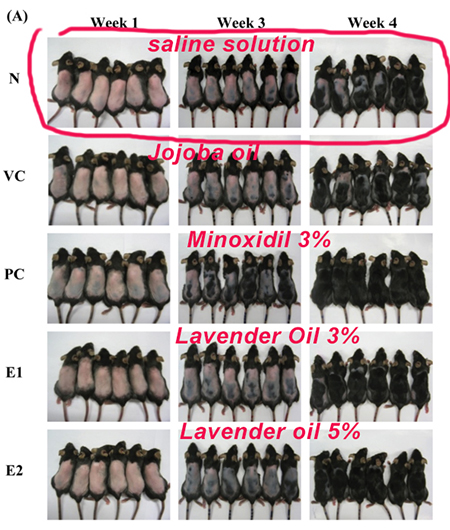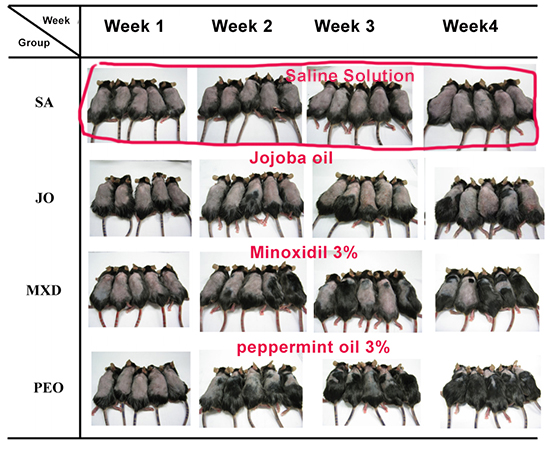Table Of Content
- Best for Grays: Living Proof Scalp Care Density Serum
- Soothing scalp treatment – peppermint oil + jojoba oil + castor oil
- Best for irritated scalps:Kitsch Castor Oil Nourishing Shampoo Bar
- How To Make Your Hair Smell Good All The Time
- Other Natural Remedies for Hair Loss
- Chic, Timeless Haircuts That Pro Hair Stylists Say Are Flattering Choices For Women Over 50
- It's anti-itch
- SHEfinds / beauty / 4 Game-Changing Hair Oils To Prevent Thinning And Boost Growth Over 40

These studies are still limited, but they do show some promise insofar. For nourishing your hair on a daily basis, add peppermint essential oil to your shampoo or conditioner (you can use mild shampoo or a baby shampoo). There is a scarce amount of knowledge about the potential applications of essential oils such as peppermint oil and their components in hair care. Undiluted peppermint essential oils can cause a burning sensation on your skin. Some people use peppermint oil as part of their beauty and hair care regimen.
Best for Grays: Living Proof Scalp Care Density Serum
It can be diluted into a carrier oil like coconut or jojoja oil, which will “deliver the oil in a way that makes it easier to tolerate,” says Dr. Garshick, or even a shampoo, says Dr. Yang. Note that products with peppermint scent won’t achieve the same results. Peppermint essential oils are distilled to contain the highest levels of menthol possible.
Soothing scalp treatment – peppermint oil + jojoba oil + castor oil

The search for hair growth stimulants and supplements is seemingly nonstop, and lately, there have been numerous ladies using peppermint oil during their hair care regimen. Some trials on mice have found promising results related to peppermint oil and hair growth promotion, but more research is needed to determine if these effects apply to humans. It proposed that rosemary oil may be used to combat hair loss like androgenetic alopecia or used with established treatments such as minoxidil and finasteride. Cosmetic formulations containing essential oils are a way to apply essential oils topically to the scalp. These and similar mice trials may be a starting point for research, but more research is needed to determine the effects of peppermint oil on human hair growth.
Peppermint Oil: Uses, Benefits, and Side Effects - Prevention Magazine
Peppermint Oil: Uses, Benefits, and Side Effects.
Posted: Tue, 31 Oct 2023 07:00:00 GMT [source]
Best for irritated scalps:Kitsch Castor Oil Nourishing Shampoo Bar
Minoxidil was originally created as a hypertension medication by Upjohn Pharmaceuticals (2). Because peppermint oil increases blood circulation, the hair gets to absorb a greater volume of nutrients. "Boosting scalp circulation is key in order to support the health of the hair overall," says Dr. Zaiac. "When we can improve blood circulation in the scalp, we are helping to deliver important nutrients to the area that can support the health and vitality of the scalp area." In this research trial, the scientists assigned study participants to four distinct groups, and each group was given a different topical application for their hair.
The author of this article, Leah Marie Priest has a degree in Cosmetology with years of experience in dealing with hair care, scalp care, and hairstyling. As someone who extensively deals with all kinds of hair textures, products, styling methods and more, hair Leah Marie knows what kind of products and procedures suit each hair type and person. We have also tested these hair products and processes ourselves to provide you an unbiased review about every product. Each of our articles are also reviewed by a team of medical professionals so that you get the most accurate and expert-reviewed information. Therefore, people with sensitive skin types require to be more precautious while using peppermint oil. Considering experts don’t know much about how peppermint oil affects hair, there’s not much solid evidence for the best way to apply the stuff or how long to leave it on.
There isn’t enough menthol in most other products to have therapeutic benefit. More research is needed to better understand the effects of peppermint oil on hair growth. Peppermint menthol also imparts a freshened smell and tingly sensation on the skin and scalp.
The drugs for alopecia treatment have been developed to maintain or induce the anagen stage of hair cycle. ALP activity in the dermal papilla was moderate in very early anagen, reached a maximal level in early anagen, and was kept at a low level during catagen (21). The bulbar dermal sheath showed intense ALP activity only in early anagen (22). Although results from clinical trials vary, the majority of the evidence indicates that there is a direct correlation between the hair follicle depth and the level of ALP activity.
It's anti-itch
Many shampoo bars will clearly label what scalp type they’re most suitable for and how they can improve your scalp health, according to our experts.. Meanwhile, “the goal of a serum is to target the hair follicle directly by delivering compounds that may allow for improved or optimal hair growth,” says Dr. Mirmirani. These ingredients are those that aren’t typically found in the diet, such as minoxidil and plant-based compounds. For a deeper dive into diluting and blending oils, read this guide on how to mix and dilute essential oils for hair growth.
Or, if you’re a fan of The Simpsons, you may recognize the name-switched version, “Dimoxinil,” from the episode “Simpson and Delilah,” where Homer regrows his hair). A 0.5% solution applied twice a day was found to be effective in controlling this kind of itchiness. Essential oils are not water soluble, but can be mixed with fats, alcohols, and ethers. But, a concentration of 3 percent oil, as highlighted in the Toxicological Research study, can be difficult to measure without the proper scales.
What’s more, while menthol is, as established, also the source of the cool minty flavor that comes with peppermint candies, that same cooling sensation can help soothe irritated or inflamed skin on your scalp. Thankfully, peppermint oil proved effective in this regard, with a 1% solution of the oil having a positive impact on long-term itchiness. The oil was also found to be beneficial in treating severe scalp itching. There are several reasons why peppermint oil is so well-regarded among those looking to breathe fresh life into fading hairlines and balding scalps.
The extracted dorsal skin was minced and homogenized with a homogenizer (T25 basic, IKA, Malaysia) by adding 4 times phosphate buffered saline (PBS) to give a 20% homogenate. The homogenate was centrifuged at 12,000 rpm, 4℃, for 20 min (AVANTI, Beckman Coulter Inc., USA). The supernatants were kept in a deep freezer at −80℃ and used for the assay.
Peppermint is good for more than just adding something extra to your chocolate chip ice cream. The essential oil, made from the leaves of the peppermint plant, has been used topically to aid with a range of medical issues. Moreover, as a natural ingredient, it is often included in hair products to boost fragrance, strength, and longevity.
"Peppermint oil also has antimicrobial and anti-inflammatory properties which help to benefit overall scalp health," says Marisa Garshick, MD, a board-certified dermatologist. Some proponents claim that peppermint essential oil can stimulate hair growth and fight hair loss. That’s thanks to menthol, the compound that gives peppermint that icy-cool feeling. Of the 4 groups tested, the peppermint oil group showed the most noticeable hair growth effects, a significant increase in dermal thickness, follicle number, and follicle depth. If you have sensitive skin, peppermint oil has potential to cause irritation if you’re using it directly on the scalp and it’s undiluted, says Dr. Garshick.
As for the potential of peppermint essential oil for hair growth, a 2014 study published in Toxicological Research found that peppermint oil helped regrow hair in mice. The animals in the study were placed in four groups, each receiving a different topical treatment over the course of four weeks. The study found that of the four different groups, the group of mice who received peppermint oil showed the most prominent hair growth effects, including hair thickness, follicle number, and follicle depth. On the other hand, a review conducted in 2020 found no clinical evidence supporting the use of peppermint oil to treat hair loss in humans. The third method for using peppermint oil to treat hair loss is to massage the peppermint oil directly into your scalp. As with most essential oils, the pure form of peppermint oil is too strong and will irritate your skin.
It balances the microbiome and pH of the scalp and regulates oil production. To better understand the influence of the endocrine system in hair growth, we analyzed the mRNA expression of IGF-1 gene. It is a potent mitogen supporting cell growth and survival (23) and also plays a role to increase hair thickness (24).
If it’s not diluted “into a product that has other ingredients in it to balance it out, it's essentially just that the potency of the concentration may be too strong for the scalp,” she says. Some symptoms you might experience could be a redness, dryness, and flaking of the scalp. Regardless, there’s no harm in trying diluted peppermint essential oil. Even if it doesn’t, it could bring other benefits to your hair and scalp. Peppermint essential oil can be a safe home remedy for improving hair growth. This formula is made with organic pumpkin seed oil, which is loaded with fatty acids and vitamin E.

No comments:
Post a Comment